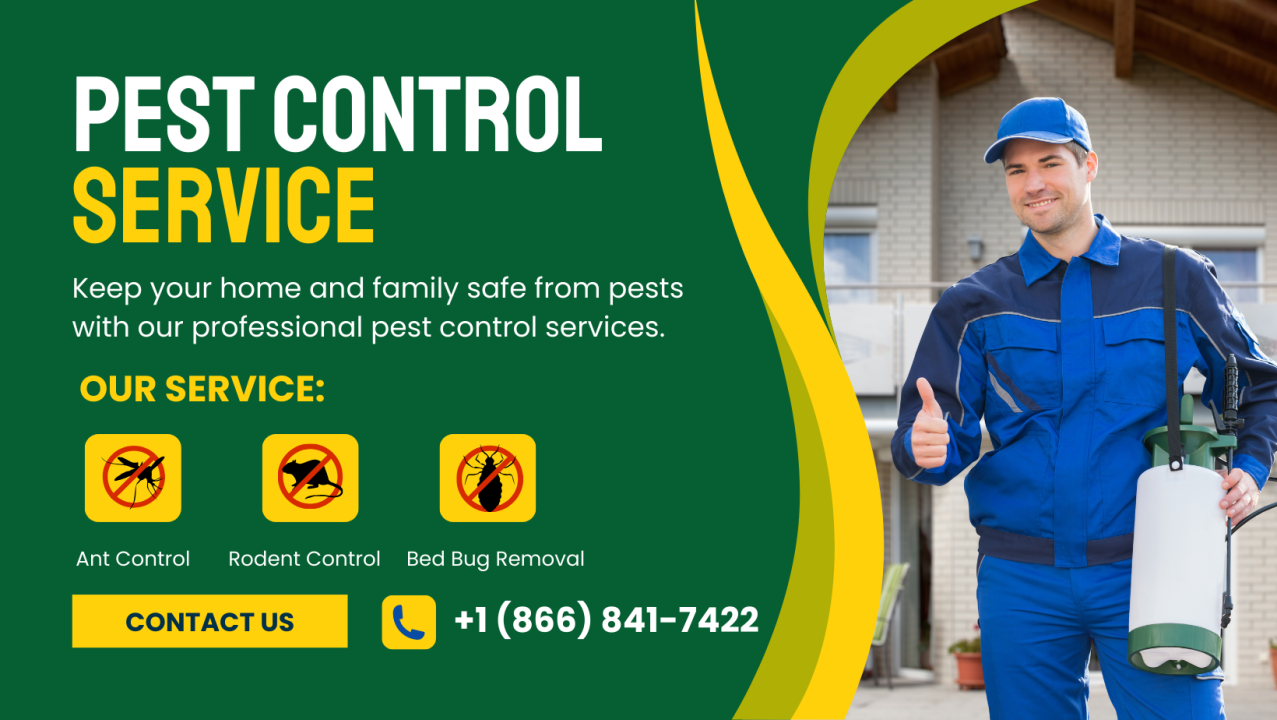Pest Control Auckland: Superior Solutions for a Pest-Free Environment
Pest Control Auckland: Superior Solutions for a Pest-Free Environment
Blog Article
Comprehending Various Types of Parasite Control Techniques and Their Efficiency
The monitoring of insects is an important aspect of maintaining the health and stability of various atmospheres, from farming fields to property homes. When thinking about insect control techniques, it is vital to comprehend the varied approaches offered and their differing levels of performance. From chemical treatments to organic options, each method offers special advantages and constraints. By discovering the nuances of these parasite control approaches, an extensive understanding of just how to deal with insect issues can be established.
Chemical Pest Control Techniques
Chemical insect control techniques play a pivotal role in successfully handling and eliminating pest invasions in different atmospheres. One of the essential advantages of chemical bug control is its ability to supply quick and targeted remedies to pest troubles. Pest Control Auckland.
Nevertheless, it is vital to think about the possible dangers and disadvantages connected with chemical pest control methods. Overreliance on chemicals can result in the development of chemical resistance in parasites, making them tougher to control over time. Additionally, making use of particular chemicals can have hazardous effects on non-target microorganisms, the atmosphere, and human health if not applied properly.

Biological Parasite Control Techniques
Utilizing natural predators and microorganisms to take care of insect populations successfully, biological parasite control techniques offer a environment-friendly and sustainable technique to pest monitoring. By introducing or promoting the task of microorganisms that naturally victimize or contaminate parasites, such as ladybugs for aphid control or specific bacteria for caterpillar problems, organic control can help keep insect populaces at manageable degrees without the demand for synthetic chemicals. This approach is particularly advantageous for natural farming practices, as it stays clear of using potentially damaging materials while preserving crop health and wellness.

Physical Insect Control Methods
While biological insect control techniques concentrate on utilizing natural killers and microorganisms, physical insect control approaches use mechanical and physical obstacles to handle parasite populations. These methods are usually thought about eco-friendly as they reduce the use of chemicals. Physical parasite control includes methods such as capturing, utilizing barriers like nets or displays, and physically eliminating bugs from the area.
Catches are generally made use of in physical pest control to catch and remove insects like pests and rodents. One more physical method is the use of barriers such as nets, screens, or fencings to protect against bugs from entering or infesting certain areas.
All-natural Insect Control Techniques
Incorporating plant-based repellents and all-natural killers is a key technique in implementing efficient all-natural parasite control techniques. By urging the existence of valuable pests like ladybugs, lacewings, or predacious mites, garden enthusiasts can visit the website naturally control pest populaces. These predators feed on typical garden pests such as caterpillars, aphids, and termites, helping to keep a well balanced community without the need for chemical interventions.

In addition, applying cultural methods such as plant turning, buddy planting, and preserving correct plant wellness can additionally improve the performance of natural bug control techniques. These techniques not only help in avoiding pest invasions however also promote biodiversity and overall ecological community resilience. By integrating these natural methods, individuals can efficiently handle parasites while decreasing ecological impact.
Integrated Insect Monitoring (IPM) Strategy
Applying an Integrated Parasite Management (IPM) approach is vital for successfully managing bug populaces while decreasing dependence on chemical pesticides. IPM is a extensive and sustainable approach that incorporates numerous pest control techniques to attain long-lasting services. This method concentrates on prevention, tracking, and control to attend to parasite issues in an eco-friendly way.
IPM integrates organic, social, physical, and mechanical strategies with the limited and calculated use of pesticides when required. By highlighting Homepage proactive measures such as habitat adjustment, organic control, and exclusion, IPM aims to minimize bug populaces and their influence on the environment. Normal monitoring is essential in IPM to evaluate insect degrees properly and determine one of the most suitable control methods.
Among the key benefits of IPM is its capability to decrease the threats connected with excessive chemical usage, such as environmental contamination and injury to non-target organisms. Furthermore, IPM promotes a more alternative technique to pest monitoring by thinking about the total environment dynamics. On the whole, the IPM method uses a effective and sustainable option for parasite control while promoting ecological duty.
Final Thought
In conclusion, understanding the various kinds of bug control approaches and their efficiency is important in effectively managing pest infestations. Integrated Pest Management (IPM) technique, which combines numerous methods for lasting pest control, is progressively being identified as a alternative and eco pleasant solution.
Chemical bug control methods play a pivotal role in properly taking care of and getting rid of pest invasions in various atmospheres.Utilizing natural killers and pathogens to manage pest populaces efficiently, biological bug control methods provide a sustainable and green method to pest monitoring. By introducing or advertising the activity of microorganisms that normally prey on or infect pests, such as ladybugs for aphid control or specific microorganisms for caterpillar invasions, biological control can aid keep why not try here insect populaces at manageable degrees without the requirement for synthetic chemicals.While biological pest control approaches concentrate on utilizing natural killers and virus, physical pest control techniques use mechanical and physical barriers to handle pest populaces. Integrated Bug Monitoring (IPM) technique, which combines various approaches for lasting parasite control, is significantly being acknowledged as a ecologically friendly and holistic service.
Report this page